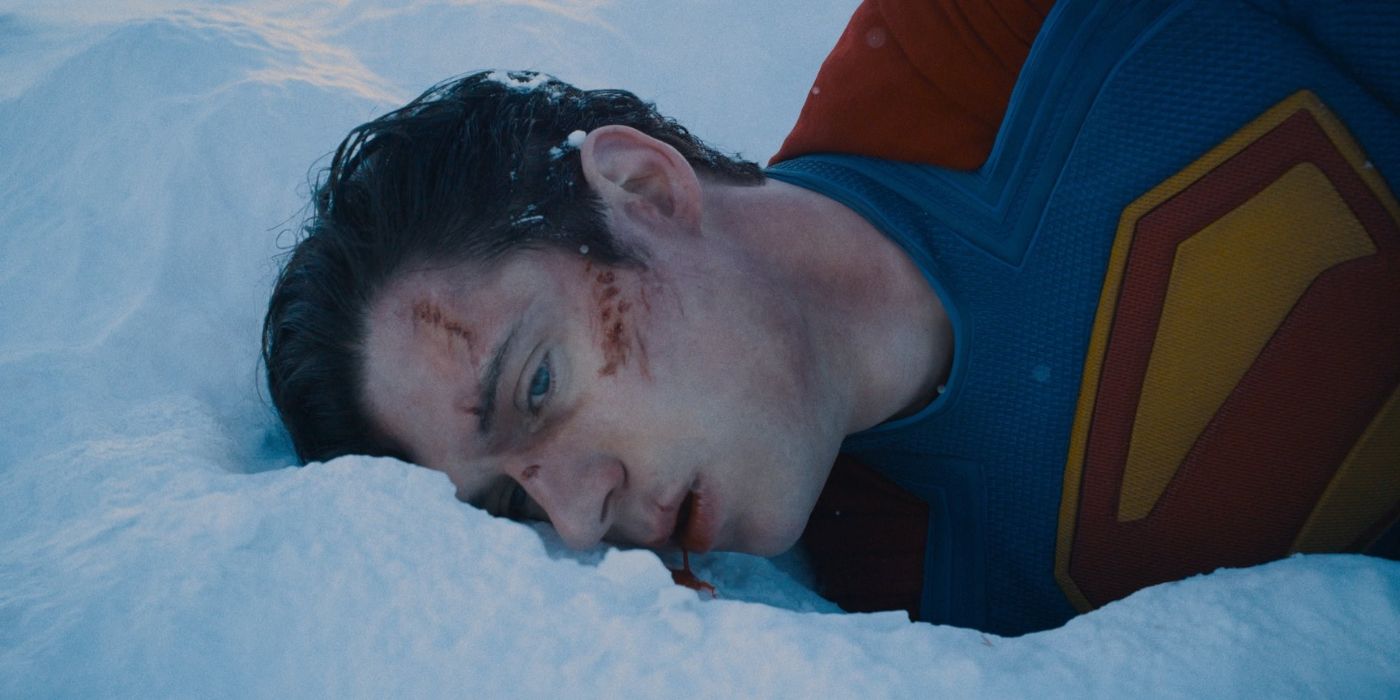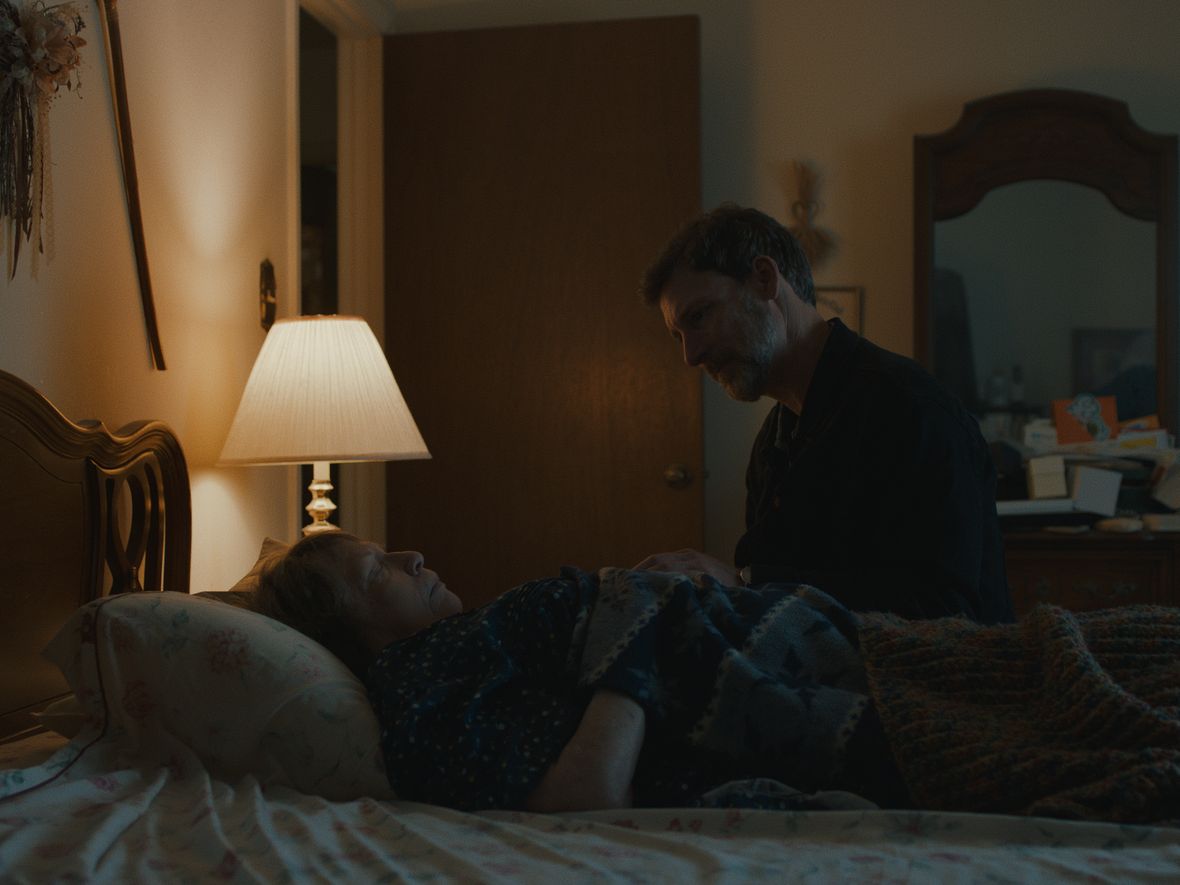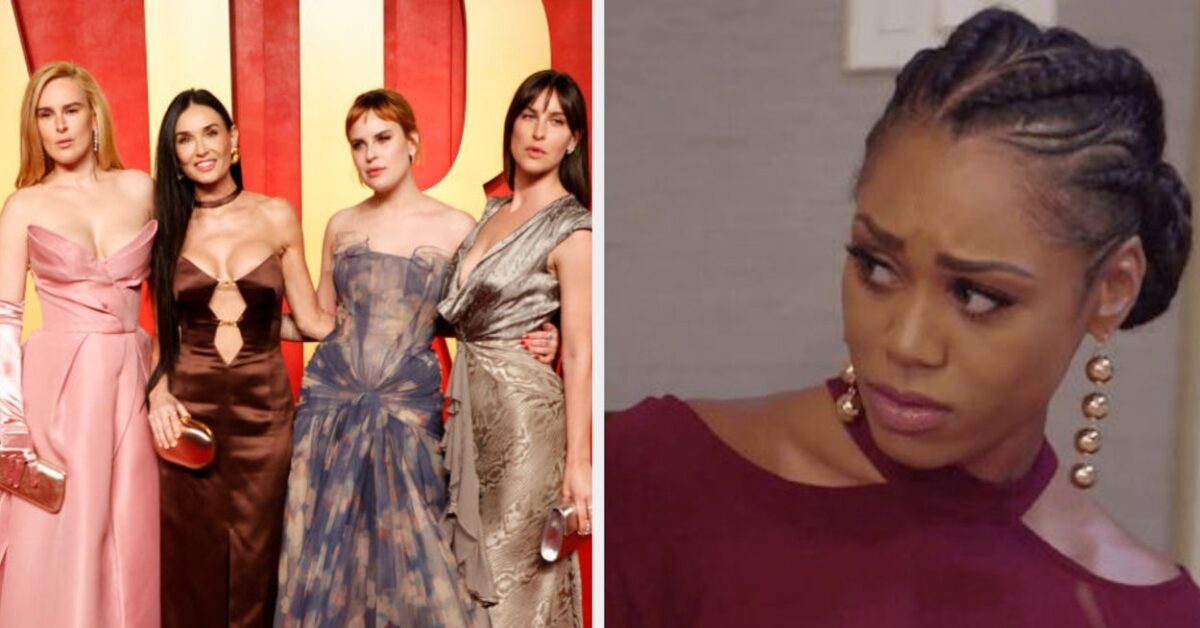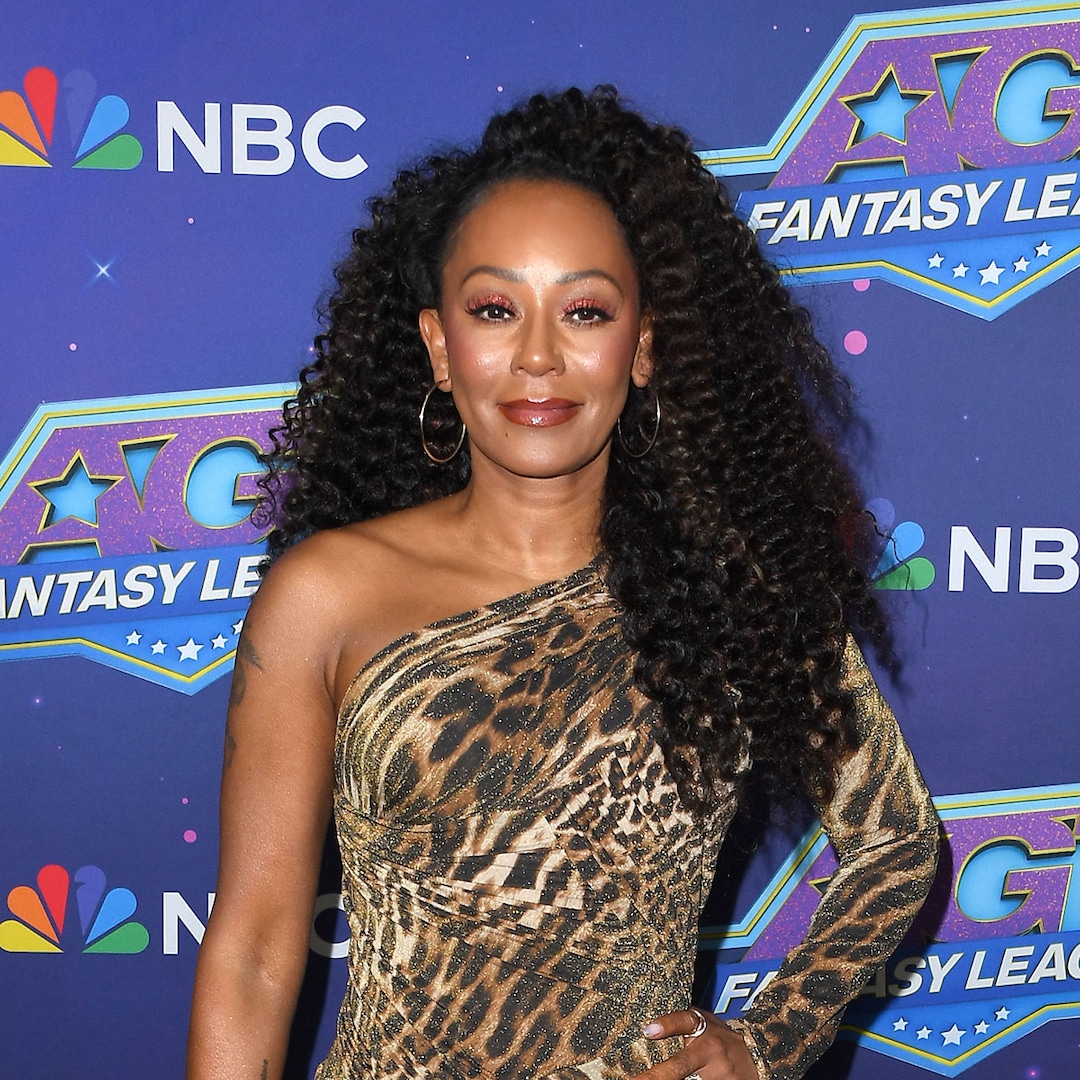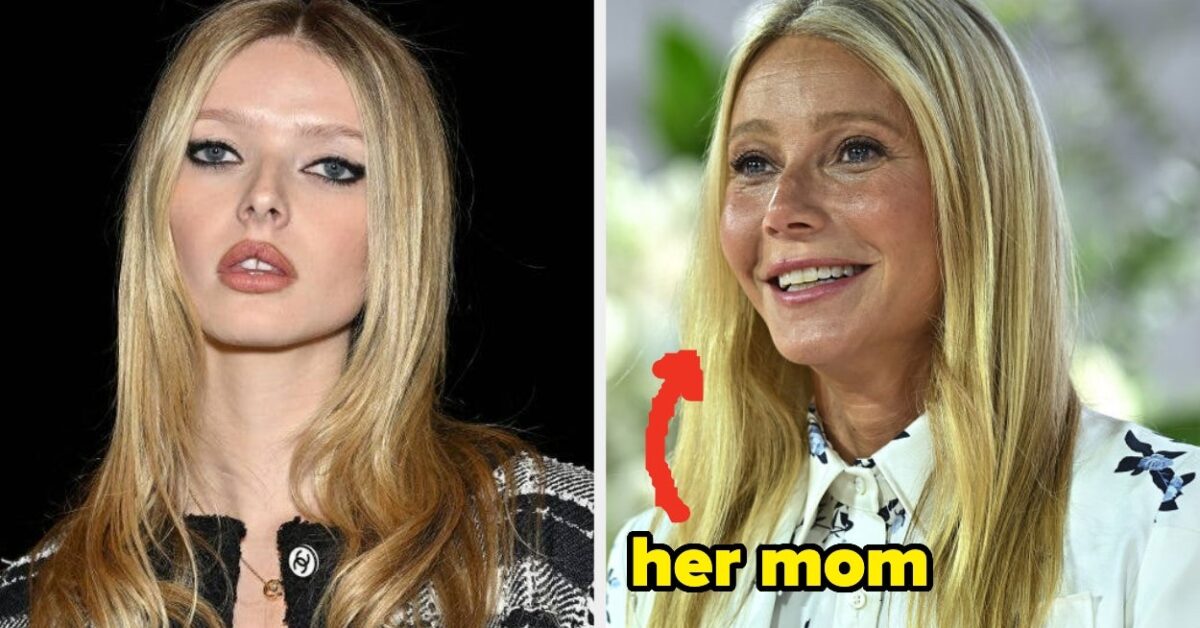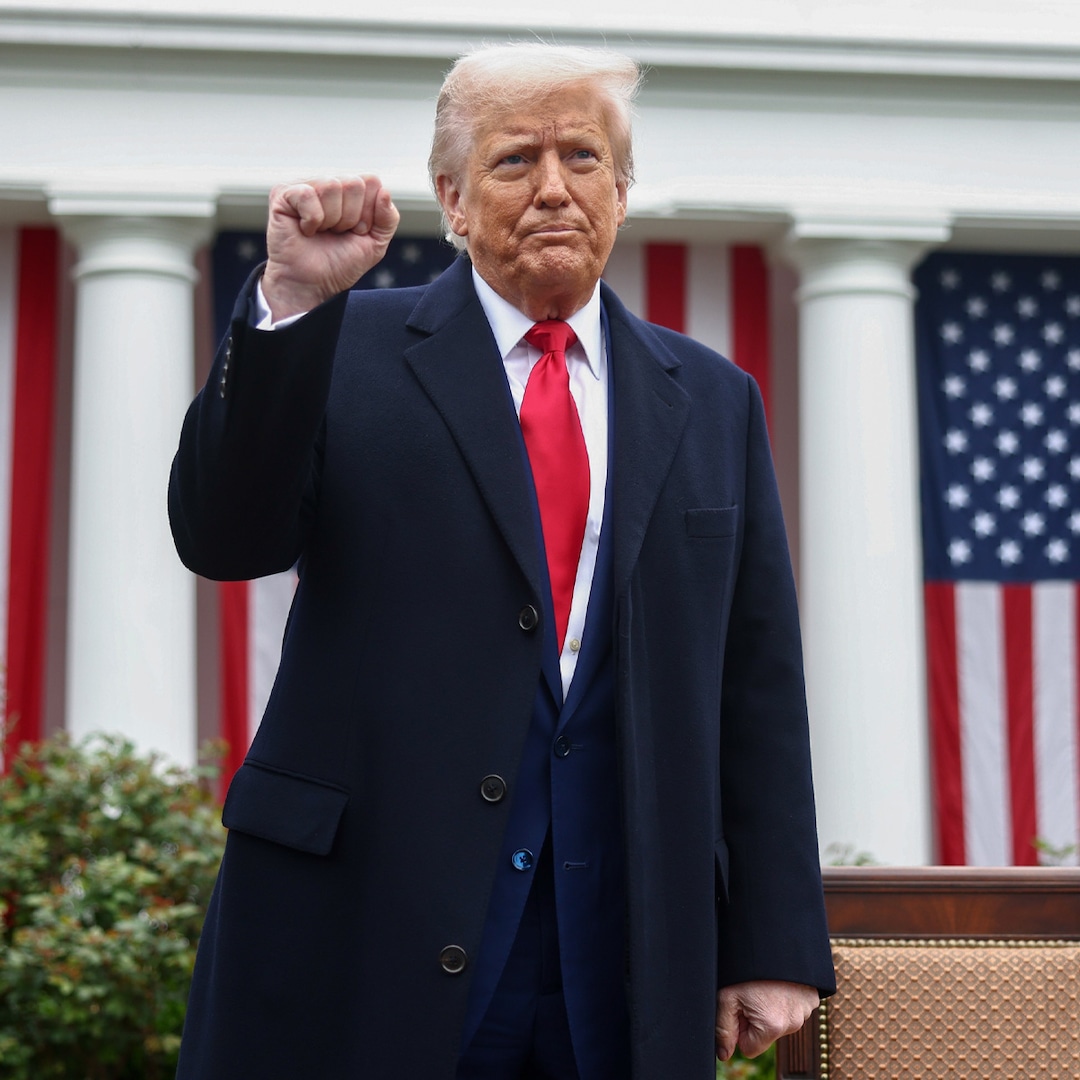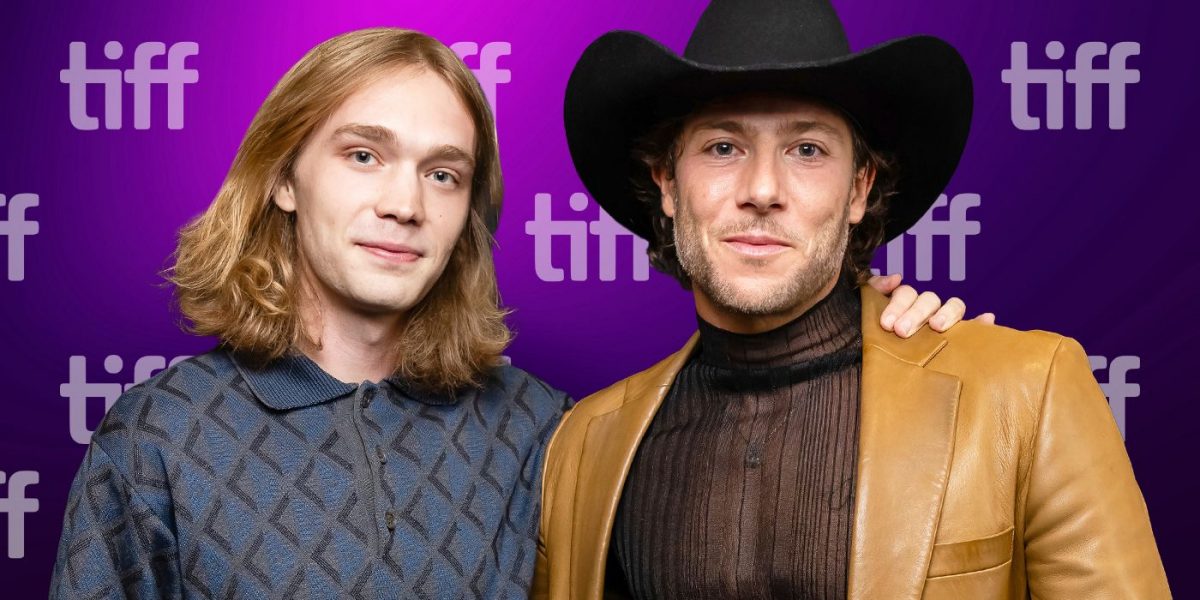
Charlie Plummer on Doing His First Drag Performance in ‘National Anthem’
Oct 1, 2023
The Big Picture
Director Luke Gilford and star Charlie Plummer talk about their movie, National Anthem, at the 2023 Toronto International Film Festival. Plummer leads as Dylan, a 21-year-old construction worker who discovers an unexpected chosen family in a community of queer rodeo performers and ranchers. During the interview, Gilford revisits his experience directing his first feature film, Plummer recalls the pressure and nerves he felt going into Dylan’s drag performance, and loads more.
National Anthem marks Luke Gilford’s feature directorial debut, but based on how he and star Charlie Plummer describe their experience making the film, it seems as though he already knows precisely how to create the most supportive and creatively fulfilling environment on set.
Plummer leads the movie as Dylan, a 21-year-old construction worker who takes care of his younger brother while their mother (Robyn Lively) is often distracted by drinking and partying. When Dylan accepts a construction gig working at House of Splendor, a community of queer rodeo performers and ranchers, he’s surprised to find a chosen family there, one that encourages him to explore and figure out who he really is.
In celebration of National Anthem’s international premiere at TIFF 2023, Gilford and Plummer swung by the Collider media studio at the Cinema Center at MARBL to revisit their experience making the film. Check out the video at the top of this article to hear all about what it was like for Gilford to make the move from music video directing to feature filmmaking, why Dylan’s drag performance in National Anthem was such a profound experience for Plummer, why he cherishes his collaboration with co-star Mason Alexander Park and loads more. You can also read the interview in transcript form below.
PERRI NEMIROFF: Because our viewers might not know about National Anthem just yet, Luke, can you give a brief synopsis of your film?
LUKE GILFORD: National Anthem is a Western for the new world. It’s a love story. It’s told through the experience of Dylan, played by the brilliant Charlie Palmer, who is a construction worker in New Mexico, 21 years old, takes care of his younger brother and his alcoholic mother. He accepts a gig working at the House of Splendor, which is a homestead built by a community of queer ranchers and rodeo performers, and is welcomed into the community and given the space to discover himself and fall in love for the first time and find the multitudes within himself that he didn’t yet know existed.
This is your first feature, but I know you had a lot of music video directing experience beforehand. What is a particular learning curve you experienced making your first feature, but then also, what is a tool unique to music video directing that actually came in handy here?
GILFORD: I would say visual storytelling. I also started with photography and learning how to tell a story in so few frames. Also, working with someone so deeply talented as Charlie, too. He’s able to tell so much of a story just with his eyes and body language. So that is a huge tool, I think, of learning just how to economically tell a story visually, too.
I would say the learning curve is working with so many different performers and actors with so many different levels of experience and backgrounds and wanting to support each one and their journey of the best way for them to work, but everyone has a different way of working, you know?
Oh, I’m definitely coming back to that idea!
But first, Charlie, I wanted to ask you about picking first-time feature filmmakers to work with because we were just talking about Brian [Duffield], Matt Smukler also comes to mind; you seem to have a knack for doing it. Do you find that all those directors have a shared quality that signals to you, yes, they can direct a film, and also, they’ll be good collaborators for me?
CHARLIE PLUMMER: Oh man, I don’t know if they all have a shared quality, but I do think there has to be something that speaks to you. I think with Luke, music was something that we immediately connected on, really before we seriously spoke about fully doing it together. We were just loosely speaking about the script and the story and the character, and then he sent me this playlist that he had been making for months for the film, some of it had songs that were in the script as well, but I just devoured that within a day.
And music for me is a huge tool as an actor, and so this was really the first director that I ever had worked with where music was such a major influence in how they wrote the story, but then also how they saw the story continually, and we continually went back to music. I mean, even songs that we would find on set, I would just pull him aside and be like, “Oh my god, this is perfect for the film! Even if we never use it, I just want to learn how to play it and play it while we’re making it.” Music really does provide such a beautiful perspective in ways that it’s hard to put words to sometimes, and I think for us, that was such a wonderful tool that we got to use to explore this story and these characters. And that was a first-time experience for me working with a director, so that was something that, specifically with this, was so special right from the beginning.
Hearing that answer makes me think you should do a movie musical next. We just had John Carney in this morning for Flora and Son. I like to manifest things that I want to see happen here at the interview studio so go work with him!
PLUMMER: Please! [Laughs] I’ll definitely call him.
Image via Photagonist at the at Collider TIFF Media Studio
Luke, I wanted to refer to something you said in your director’s statement. You were talking about how you came to realize how homophobic mainstream rodeo can be. Now, having made this film, is there anything that young you first realizing that would see in this movie and think, “My god, I am proud I was able to bring that to screen one day?”
GILFORD: What a great question. Thank you. I think that so many queer stories and so much of the queer experience, unfortunately, being in the world is about survival and is about trauma, so all the queer stories that we’ve seen on screen have been tragedies. So I am so moved that we were able to tell a story that is about hope and about the beauty of these safe spaces that have existed since the dawn of time. Queer people have existed and been creating these spaces. So that, to me, I think a young version of myself would be really inspired by that.
Charlie, to talk a little bit about Dylan now, going into filming, what particular quality of his were you most looking forward to playing, but then also, what part of his experience wound up being more creatively fulfilling to dig into than you ever could have imagined?
PLUMMER: Oh wow, that’s a wonderful question. For the character going in, I think something I was really excited about – I’ve kind of been obsessed with being a wannabe cowboy for such a long time, and speaking to Luke who’s an actual cowboy and understanding that what he was wanting to do with this was create a classic Western love story, but taking this cowboy archetype that has been the idea of the American man in so many ways and finding a much more full perspective of what that really means, and in this case, really embracing the side of femininity with this person, I think that was the thing I was most excited about, about really witnessing in myself as much as through the story, both of those energies coming together to be in this one human. That was really, really wonderful to get to live out.
And then, really, I think the thing that I was so stressed about coming in [laughs], and then really did prove to be such a monumentally profound experience for me, was the drag performance that Dylan gets to have. It was something that I’ve been such a fan of, the art form of drag, for such a long time and had such a respect from afar for what those performers are able to do, but then actually going through the rehearsals and humbling myself as to really how much work I had to do. And then, of course, on the day, Luke just being like, “Forget all of that and just trust what’s there, and that’s it.” And I knew he was gonna say that [laughs], but I still spent so many weeks trying to get all those moves down, and so for him to say that and just break that open, that was such a profound experience, and really letting that out, and hopefully that’s what people see in the scene. So I think that was really, really special and something I’ll always look back on.
Exceptional scene! And seeing him share that with his little brother too, it just filled my heart.
GILFORD: In real life, his little brother was there, who’s a huge drag fan.
PLUMMER: Yeah, my brother is the biggest fan of drag and has been for years. He wanted to be a queen. His name is Charlemagne Sassy-Bashy Beverly Hills, that’s his drag name. I would be in big trouble if I didn’t give him a shout-out. So I flew him out for that one scene because it was really meaningful because, of course, that’s a huge dynamic with Dylan and his brother, and for me, that was huge. I mean, drag has been a way for us, and continually – I mean, every time I go home, it’s who won Canadian Drag Race, who won US Drag Race, who won Australian Drag Race. It’s insane how many there are now.
Image via Photagonist at the at Collider TIFF Media Studio
Speaking of that character, and also all of the supporting characters in this movie, I want to go back to what you were saying about actors having different processes. Can you maybe pick two members of this ensemble who have different approaches to the work where it called for something different from you as an actor’s director?
GILFORD: The first one that comes to mind is his brother in the film. We really wanted for that to be an authentic relationship, and so collaborating with Charlie on that and Joey [DeLeon] is his name in real life, the actor who plays him, Cassidy is the character’s name. Cassidy is written to be sort of a savant, and when I met Joey, he was so much of that. As soon as I met him he was like, “Did you know this,” and, “Did you know that?” It just felt immediately like Cassidy. But I know that a lot of kids when they start to read scripts and learn lines, it becomes this thing that they do over and over again, and it becomes meaningless, so I chose not to share the script and to basically keep it all improv, and I think that that was a really interesting way for us to work so that it really felt fresh and new in the moment with them. But that also meant that rehearsals were different. It was more about them building a relationship and a rapport, which I feel is so moving. It was really moving to watch them do that. It was very real.
Charlie, what was your reaction to finding out that you would have to film something that way? Is that exciting or is it intimidating?
PLUMMER: I mean, it was exciting because I think there’s such a trust between Luke and I that when he said that, it just honestly made sense, especially after I met Joey. And as a former child actor, I know that the way kids are taught, especially when they’re starting out, is to kind of be perfectionist about the material and try to find a formula that works. So oftentimes, kids come to a set on the first day and have a very clear idea of how they’re gonna do it, and what Luke was wanting with this film was really the opposite from all of the performances and really kind of leaving space for something else to come up throughout the scene. And so with Joey, I think it just made more sense for us to have an understanding of where the scene would need to go and to, of course, have that conversation with him beforehand, but also make sure that we were never locking into one way of doing anything. And I think that’s where a lot of these really special moments, like especially the scene that I think just came out that people can see where I come home and he’s helping me take off my makeup. So much of that was just the truth of him and how he was responding to me, and that is what’s so beautiful.
GILFORD: It was like one take. It was all just in the moment of their honest interaction, so that was a really inspiring way for us to bring out the truth and the heart of the scene.
It was such an effective choice. I love that.
So we’ve got Joey now, but to loop in another actor in this ensemble, Charlie, can you pinpoint someone who was just the scene partner you needed for a really challenging scene? A time when another actor helped you access something in Dylan that you might not have been able to reach without them?
PLUMMER: Absolutely. I mean, that’s a pretty easy answer. I think Luke knows who I’m gonna say with this, but Mason Alexander Park, who plays Carrie in the film. I think the relationship between Carrie and Dylan in the film reflects this, but I do think Carrie is such a grounding force for Dylan and is really Dylan’s best friend and truest friend. I just felt like every scene that I had with Mason – actually, the first scene that I had with Mason, in which they were doing yard work or something, and I just come up to them and we’re just chatting. I mean, that alone, it was just like, “Oh my god, whatever this dynamic is in this chemistry and this energy, I just need to be a part of that.” And then it carried through until the final scene that I have with them where they’re really holding me. They’re a person who, just as actors, I feel such a safety with, such a trust with, and for that scene in particular because that was so much of what the scene was about, and Carrie as a character really allowing Dylan to see his future and to feel safe in seeing his future and to feel held in seeing his future, to not be scared of that, that meant so much to me. And of course, it always reverberates, all the layers.
And I think Mason, really wonderfully at South By [Southwest], we got to have a really wonderful moment together after the film where I think we both really shared just how much that meant to one another. And also seeing that in the film. You know, it’s validating to get to witness it again on camera, so I’m so grateful for them.
Mason’s a special one!
PLUMMER: Yeah, they’re so, so special.
Another person I wanted to loop in here is Katelin [Arizmendi], your cinematographer. I’m a big fan of some of her other work as well. When you’re looking for a cinematographer for something like this, what do you see in her that signals to you, not only is she good at her job and can help me execute my vision, but she can also add to it and elevate it throughout the process?
GILFORD: There was really no one else I wanted to work with. I think, especially coming from a photography background, I’m so visual, so it’s a very important person to be collaborating with, and it’s a decision I did not take lightly. But it was so clearly her for me because, yes, she’s immensely talented, and there’s just phenomenal depth to her vision and so many layers in terms of how she sees the material and what she brings to it, but also just our personalities. It really comes down to that, of the way that we genuinely want to be hanging out with each other all the time, especially working on indie films like this. You really become family. I think the themes of the film start to come alive behind the scenes as well, and for this, it’s family, and so she really very much is that. So yeah, it’s so much her personality.
Image via Photagonist at the at Collider TIFF Media Studio
I’m gonna end with a big question for both of you. What is something you managed to accomplish on National Anthem that makes certain filmmaking goals feel more within reach than ever?
PLUMMER: I think for me, there’s so many individual moments to go through. Obviously, that drag performance is one of them, but I think for me, quite honestly, it’s maybe a cop-out answer, but it really was the whole experience, just how intimate our first conversation about the script felt and it felt like it was really just us and sharing this vision and understanding.
And then, I think less than a year later, for that to be done and for us to have made that film and had that experience. I’ve never been a part of something from that kind of a stage and then to witness it grow into that in that way, that was really special. Usually, I come on at a later stage, and this was quite honestly the most a director’s ever trusted me as a collaborator in the fullest sense. I think that was, for me as an actor, such a reinvigorating and eye-opening and unbelievable experience to get to have because that power of collaboration that ultimately he had the choice of trusting me with or not trusting me with, and he chose to trust me with that, that gave the experience so much more life, and it made it feel so much more full than anything I could have imagined.
That really is what I want to do now moving forward. I’ve only gotten to make one other thing since then, but fortunately, I really felt like that feeling was there in making it, and I really bring it back to that bond that we had and that very first conversation and just trusting that feeling and then witnessing that become this film and this story.
That’s such a beautiful answer!
GILFORD: Absolutely, as you can see, we have a very special connection and so I think that is a big thing, is I really want to work with Charlie again and more. So that’s a big one of just seeing how profound and deep and meaningful that relationship can be. But also, with so much of the crew, we were able to really hand-pick everyone because it wasn’t a huge production, so there were so many women, there were so many people of color, there were so many queer people. I think with a lot of the conversations happening right now, it’s inspiring to see that people are fighting for more respect, and that was something that from the very beginning was so important to us, was for people to be treated fairly and with respect and care. And so I really want to be fighting for more of that and to keep that going. It was so beautiful to see, and for the producers to support that. And so it was, to me, a really inspiring example that that is possible, it can be done, and to keep going.
Special thanks to MARBL Restaurant for hosting Collider as well as additional sponsors Sommsation, a top wine experience brand and online shop, and Molson Coors’ Blue Moon Belgian White as the beer of choice at the Cinema Center. Additionally, Moët Hennessy featuring Belvedere Vodka featured cocktails and Tres Generaciones Tequila.
Publisher: Source link
Rumer Willis Revealed Her Very Controversial Adult Sleep And Hygiene Habits, And How She Wants To Pass Them Down To Her Daughter
Hmm...View Entire Post › Disclaimer: This story is auto-aggregated by a computer program and has not been created or edited by filmibee.Publisher: Source link
Apr 8, 2025
Mel B, Eddie Murphy’s Son Angel, 18, Seen in Rare Photos
Stop right now: Mel B‘s family is celebrating a milestone. In honor of her and Eddie Murphy’s son Angel’s 18th birthday, the Spice Girl shared a sweet tribute on social media, including a carousel of pictures of him as a…
Apr 8, 2025
Apple Martin Shared What It's Like Being A "Celebrity Child," And I'm Slow-Clapping At My Cracked iPhone Screen Now
Points were made, and points were taken.View Entire Post › Disclaimer: This story is auto-aggregated by a computer program and has not been created or edited by filmibee.Publisher: Source link
Apr 7, 2025
Meet Donald Trump's Cabinet, From Sean Duffy to Robert F. Kennedy Jr.
President Donald Trump’s Cabinet is full. All 15 of his nominations—some more controversial than others—have been confirmed by the U.S. Senate. Secretary of State Marco Rubio was the only one who... Disclaimer: This story is auto-aggregated by a computer program…
Apr 7, 2025


